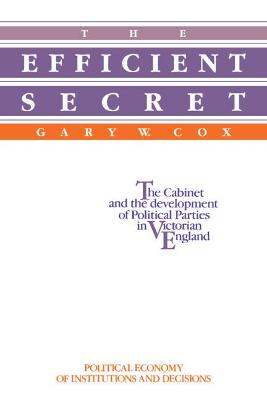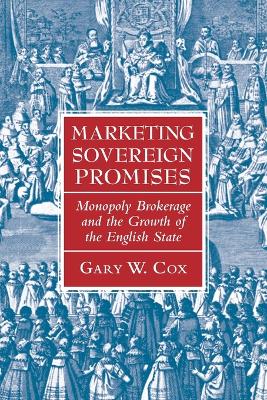Political Economy of Institutions and Decisions
3 total works
Popular elections are at the heart of representative democracy. Thus, understanding the laws and practices that govern such elections is essential to understanding modern democracy. In this book, Cox views electoral laws as posing a variety of coordination problems that political forces must solve. Coordination problems - and with them the necessity of negotiating withdrawals, strategic voting, and other species of strategic coordination - arise in all electoral systems. This book employs a unified game-theoretic model to study strategic coordination worldwide and that relies primarily on constituency-level rather than national aggregate data in testing theoretical propositions about the effects of electoral laws. This book also considers not just what happens when political forces succeed in solving the coordination problems inherent in the electoral system they face but also what happens when they fail.
The Efficient Secret is an analysis of the institutional changes in parliamentary government in nineteenth-century England, concentrating on the years between the first and third Reform Acts. Professor Gary W. Cox employs a rational choice model to analyze the problems of voter choice and to examine the emergence of party loyalty in the electorate, the development of cabinet government, and their legislative consequences. The introductory chapters provide the historical setting for this study and briefly survey nineteenth-century political and economic events. Professor Cox then focuses on the increases in party voting in Parliament and in the electorate. To support his argument concerning these parallel developments, he uses statistical evidence drawn from poll books and newspapers.
How did England, once a minor regional power, become a global hegemon between 1689 and 1815? Why, over the same period, did she become the world's first industrial nation? Gary W. Cox addresses these questions in Marketing Sovereign Promises. The book examines two central issues: the origins of the great taxing power of the modern state and how that power is made compatible with economic growth. Part I considers England's rise after the revolution of 1689, highlighting the establishment of annual budgets with shutdown reversions. This core reform effected a great increase in per capita tax extraction. Part II investigates the regional and global spread of British budgeting ideas. Cox argues that states grew only if they addressed a central credibility problem afflicting the Ancien Regime - that rulers were legally entitled to spend public revenue however they deemed fit.


